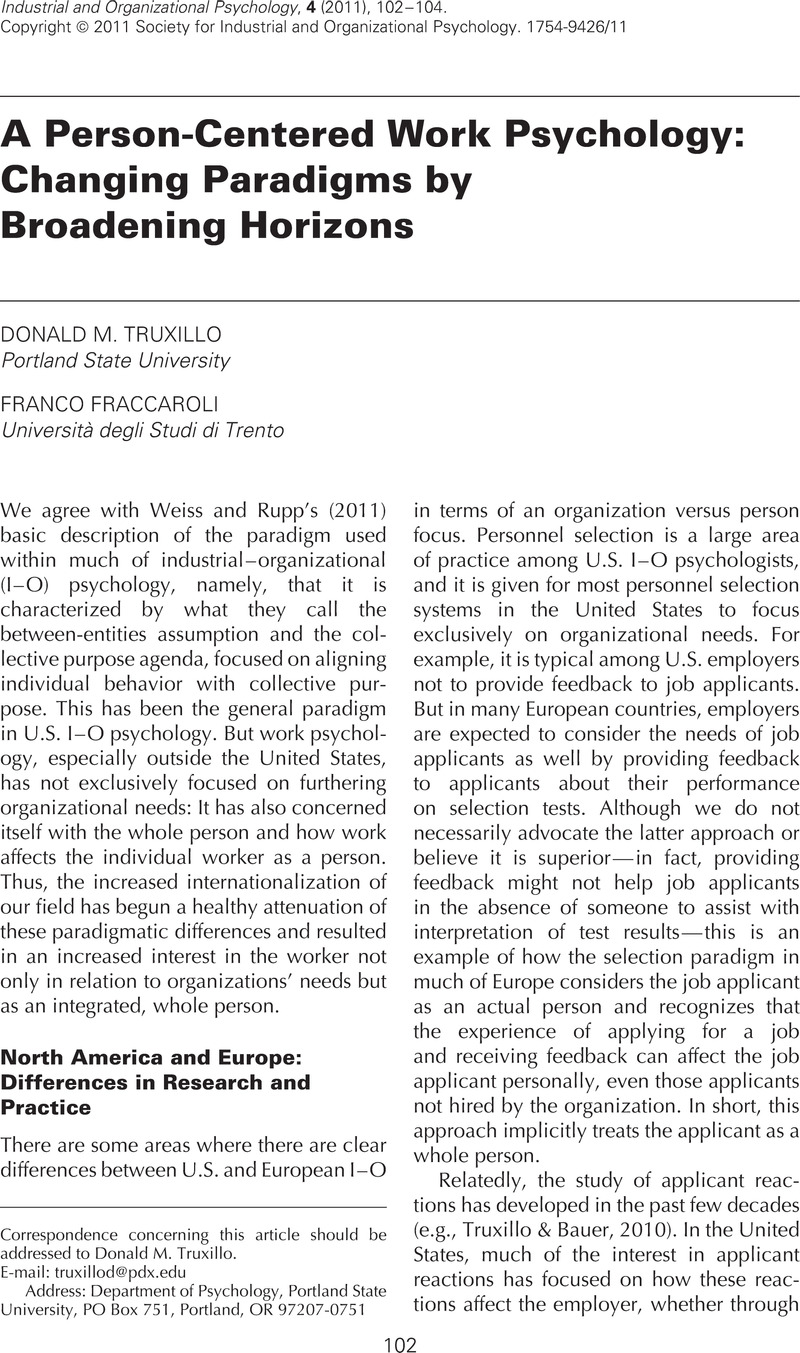Crossref Citations
This article has been cited by the following publications. This list is generated based on data provided by Crossref.
Weiss, Howard M.
and
Rupp, Deborah E.
2011.
Envisioning a Person-Centric Work Psychology.
Industrial and Organizational Psychology,
Vol. 4,
Issue. 1,
p.
138.
Chan, Kim Yin
Ho, Moon-ho R.
Chernyshenko, Oleksandr S.
Bedford, Olwen
Uy, Marilyn A.
Gomulya, David
Sam, Y.L.
and
Phan, Wei Ming J.
2012.
Entrepreneurship, professionalism, leadership: A framework and measure for understanding boundaryless careers.
Journal of Vocational Behavior,
Vol. 81,
Issue. 1,
p.
73.
Reichman, Walter
and
Berry, Mary O’Neill
2012.
Humanitarian Work Psychology.
p.
34.
Altman, Yochanan
and
Baruch, Yehuda
2013.
Talent Management of Self-Initiated Expatriates.
p.
19.
Burgess, Annette
Roberts, Chris
Clark, Tyler
and
Mossman, Karyn
2014.
The social validity of a national assessment centre for selection into general practice training.
BMC Medical Education,
Vol. 14,
Issue. 1,
Truxillo, Donald M.
and
Fraccaroli, Franco
2014.
Internationalizing the Curriculum in Organizational Psychology.
p.
41.
Zhang, Yanyan
Xu, Baihua
and
Zhang, Jin
2015.
Impact of Procedural Characteristics on Justice Perceptions of Chinese Civil Service Candidates.
Public Personnel Management,
Vol. 44,
Issue. 4,
p.
543.
Berdutin, Vitaliy
2020.
Robust management tools for a person-centered medical organization.
Glavvrač (Chief Medical Officer),
p.
17.



